2020年2月16日(日)に開催したPh.Discoverキックオフイベントで語られた内容を3回に渡って動画とレポートで紹介します。当日は大学生、大学院生、大学教職員、市民のみなさま約50名が参加しました。多様な11名のスピーカーからの話題提供を中心に、来場者からの質問回答を交えながら2時間半に渡る熱いディスカッションが行われました。全編動画(3部構成:約30分×3)をYouTubeに公開しましたので、ぜひライブ感もお楽しみください。
イベントで使用したハッシュタグ #ph_discover_kickoff で感想やご意見をツイートしていただければ幸いです。今後の活動の参考にさせていただきます。
スピーカー(順不同/敬称略)
- 人見 尊志氏(日本オラクル株式会社 ソリューションエンジニアリング本部長)
- 倉 千晴氏(株式会社神戸製鋼所/Ph.D.)
- 高橋 陸氏(NTT物性科学基礎研究所/Ph.D.)
- 伊勢田 一也氏(旭化成株式会社人事部/Ph.D.)
- 吉原 拓也(北海道大学人材育成本部特任教授)
- 中垣 俊之(北海道大学教授/電子科学研所 所長)
- 正宗 淳(北海道大学大学院理学研究院教授)
- 石森 浩一郎(北海道大学大学院理学研究院教授/Ph.Discoverプロジェクト代表)
進 行
- 丸 幸弘氏(株式会社リバネスグループ代表取締役CEO/Ph.D.)
- 加藤 真樹(北海道大学主任URA/Ph.D.)
- 大津 珠子(北海道大学大学院理学研究院准教授/Ph.Discoverプロジェクト担当)
※経歴等は2020年2月16日現在
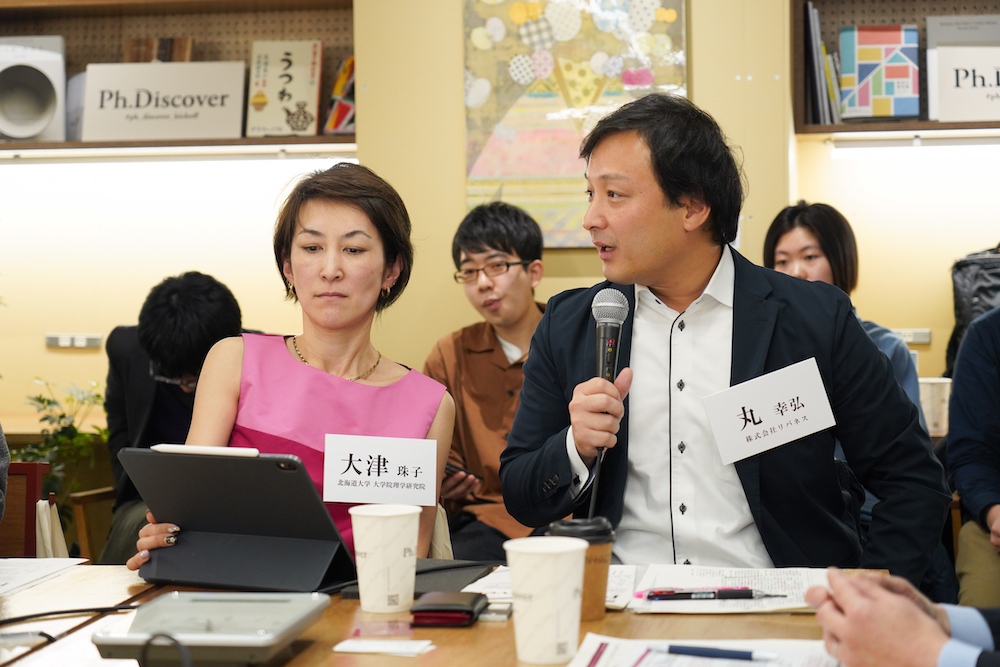
11名のスピーカー自己紹介
丸 幸弘(株式会社リバネス代表取締役グループCEO)
修士の24歳の時にベンチャー企業リバネスを立ち上げて、そのまま学生を続けながらPh.D.を取って、今、100社以上の会社を経営しており、「Ph.D.(博士)めっちゃ使える」っていう事実をいろんな機会で発信しています。Ph.D.を取った人たちがどう活躍しているのか、またそのキャリアパス、そして企業はどう考えているのか?大学はどうあるべきなのか?今日はみなさまと一緒に議論したいと思います。
石森 浩一郎(北海道大学大学院理学研究院教授/Ph.Discoverプロジェクト代表)
このイベントの主催者として、また北海道大学博士課程リーディングプログラムのコーディネーターとして参加しています。リーディングプログラムを通して企業の方々にお話を聞く中で一番印象的だったのは、非常に博士課程の院生や博士修了者に期待していて「良い人材いたら是非紹介してください」って言われたことです。キャリアパスの多様性が大変上手く回りつつあるのですが、その事実が多くのみなさんに伝わっていない状況です。良い流れが循環しはじめているファクトを全世界に伝えたいと考え、今回のイベントを企画しました。
人見 尊志(日本オラクル株式会社 ソリューションエンジニアリング本部長)
今日はnon-Ph.D.枠で参加しています。日本オラクルはIT企業で、コンピューターサイエンスの知識を持っている社員が多い会社です。お客さまにもPh.D.の方がいて、その方たちに対応するためのコミュニケーションスキルと知識が必要になります。ですからエキスパートやアーキテクトとして活躍しているPh.D.人材が多数おります。
吉原 拓也(北海道大学人材育成本部特任教授)
北大の博士人材の育成、就職支援をしています。仕事を通して年間に約100社の方に会いますが、みなさまから、優秀な博士を採用したいと言われます。博士の需要は高まっていて、景気がこのままであれば、さらに好転していくだろうと肌で感じています。実際に学生さんの悩みって「自分は専門をこれだけやってきたけど、これが社会に出た時本当に使えるのか?」だったり「博士を修了する時に27歳とか28歳になっていて、家庭を持とうって時にパートナーが別なところに転勤しちゃうから悩ましい」など様々ありますね。
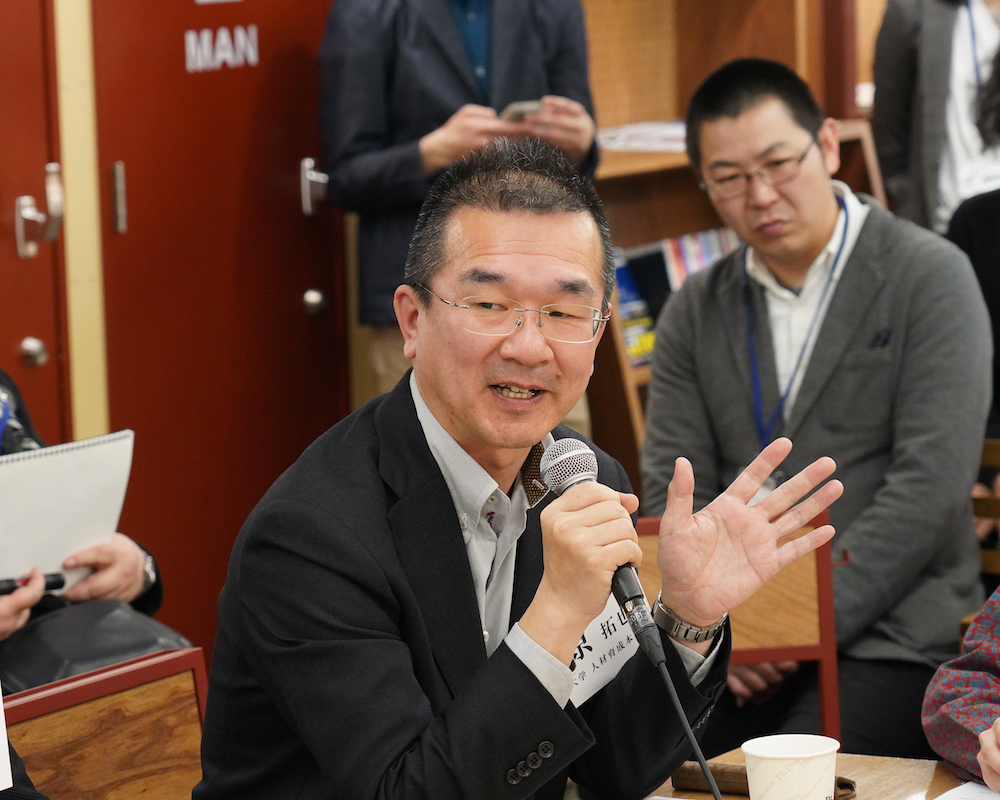
倉 千晴(株式会社神戸製鋼所)
2013年度に北海道大学総合化学院に在籍し、修士1年生の時にリーディングプログラム(ALP)のパイロット生として選抜してもらいました。2018年にPh.D.を取得、及びリーディングプログラムを修了し、2018年4月に神戸製鋼所に入社しました。現在、技術開発本部の応用物理研究所物性制御研究室に所属しています。新しい部署に入る時「リーディングプログラムやドクターの経験は様々な場面で生かすことができるから心配しなくていいよ」と会社の先輩からアドバイスを頂きました。
高橋 陸(NTT 物性科学基礎研究所)
2013年に北大の修士に入り、博士課程とリーディングプログラム(ALP)を経験して2018年に修了し、NTTに入社しました。ALPで多様なキャリアパスが有ることを知り、特に抵抗無くNTTを就職先の一つとして候補に入れていました。現在所属している物性科学基礎研究所はアカデミック寄りの職場で、論文を書いて出すこともミッションの一つです。
正宗 淳(北海道大学大学院理学研究院教授)
数学を専門にしています。1999年に日本で学位を取り、その後イタリアのローマ大学とロンドン・インペリアル・カレッジ、米国ペンシルバニア州立大学を経て今北大にいます。工学分野の仲間や企業の人とシミュレーターのプロジェクトを進めながら、Ph.D.やポスドクのみなさんと一緒に研究しています。
中垣 俊之(北海道大学教授/電子科学研所所長)
私は1982年に北海道大学に入学しました。当時は、ドクター(博士課程)は学者になるために行くのかな、と思い込んでいました。また周りの先輩や先生がとても優秀に見えて、自分には無理だなとも思いました。さらに、お金がかかるっていうこともあって博士進学を断念し、某製薬会社に入社しました。そこでPh.D.取った同僚がプロジェクトリーダーとして働いていて、眩しく見えて、もしかしたら自分にもできるかもしれないって思いはじめ、30歳をちょうど超えた時、ドクターコースへ進みました。
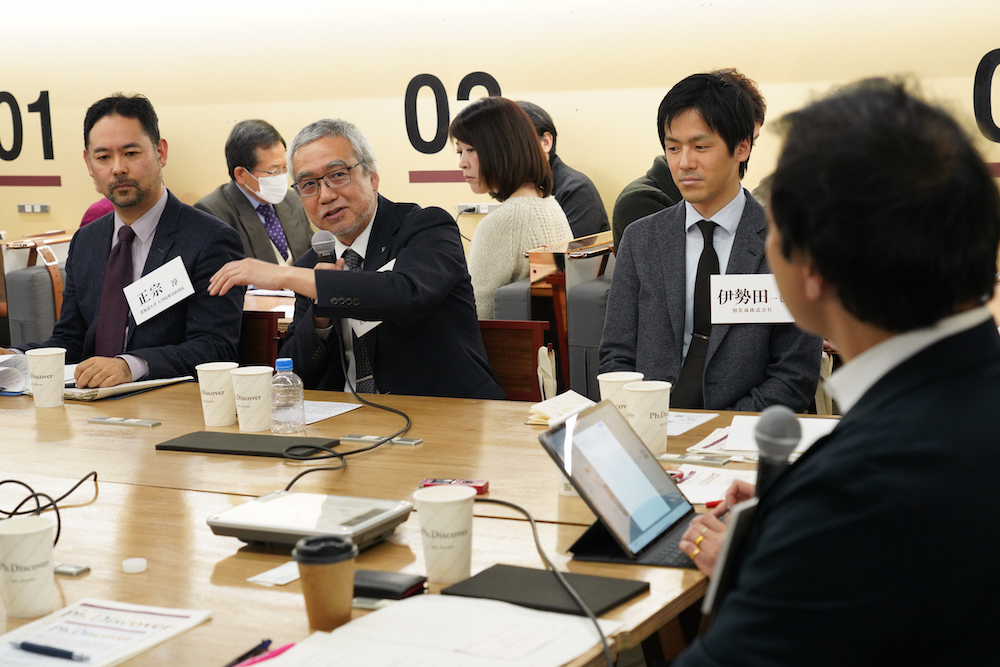
伊勢田 一也(旭化成株式会社人事部)
旭化成に入ってから4年間基礎研究をやっていましたが、今は技術系の採用担当に携わっています。旭化成の場合、技術系の採用は必ず技術職出身の人が担当します。様々な経験を生かしてキャリアアップして、また研究に戻って経験を積む、という働き方のサイクルです。
旭化成に限らず、日本企業のほとんどが、間違いなく専門性を求めています。ただ専門性のマッチングのみを求めているわけではありません。新しい課題を与えた時に、この人がどこまで深められるのかを見ているので、その1つの指標がPh.D.でもあるのだろうと思います。
加藤 真樹(北海道大学主任URA)
リサーチアドミニストレーターという、大学の研究推進や研究支援に関わる企画・戦略を立案する仕事をしています。私はいわゆるロスジェネ世代でして、ポスドク1万人計画の頃にポスドクになって、研究所をいくつか渡り歩いてきました。
大津 珠子(北海道大学大学院理学研究院准教授)
今回のイベントを企画しました。遠方からお集まりくださったみなさま、誠にありがとうございました。今日は黒子に徹して、SNSを通して会場のみなさまのご意見、質問を拾って、進行の丸さんにどんどんパスしていきたいと思っておりますのでどうぞよろしくお願いします。
「博士課程教育リーディングプログラム」と「卓越大学院プログラム」
石森: リーディングプログラムの趣旨は産業界、社会で役立つ博士修了者を増やそうということで、専門性は従来通り深めさせ、プラスアルファで社会人としての基礎力を教えなさいっていうことでした。従来型の博士はある分野の専門家であって、自分は1番、会社に入ってもこれしかやらない、と言ってしまう傾向があったので、やっぱり企業としても採用しづらかったと思います。
リーディングプログラムは、詰め込み型の教育をして、少数のグローバルリーダーを育てようとしたんですが、博士に進学する人が未だに増えず、逆に様々な要因から減っている状況にあります。そこで、リーディングプログラムより対象を広げて大学院全体を底上げしようっていうのが卓越大学院の理念です。
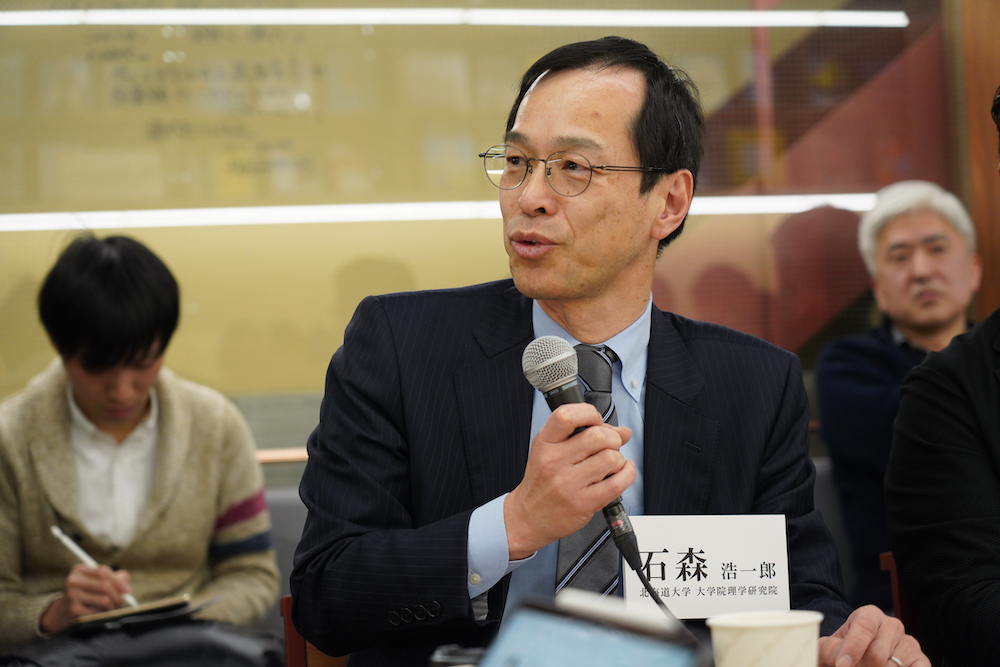
Ph.D.と企業のコラボレーション
丸: 正宗さんのところではポスドクの方が企業とコラボレーションしているじゃないですか。トレーニングプログラムを作るというよりは、何か特殊な教育をしようと考えたのですか?
正宗: 元々もっと様々なキャリアパスが必要だっていうのは日本に戻った時から意識していました。そのために私自身が実際に経験しなくちゃいけないと思い、ポスドクを入れて企業とコラボレーションし、さらに学生を参加させてきました。
「博士課程教育リーディングプログラム」修了は企業の就職に有利にはたらくか
丸: 伊勢田さん、リーディングプログラムを修了した人を積極的に採用しようみたいな動きってあるんですか。
伊勢田: あまりないです。リーディング大学院在籍リストみたいなのがあるわけではないので。例えば大学側から、この学生は特別な教育を受けたので推薦します、みたいなリストがあれば、それを頂いて、特別な教育受けているならぜひ呼んでみましょうとなるかもしれません。
面接にお呼びして、そこでリーディング大学院生だと知ると、その経験に対して質問をすることはあります。リーディング大学院は、異分野のラボに行ったり研究をしたりする経験を重ねているので、そこから何を得たのか?を聞きます。リーディング大学院に行っているから加点しますみたいなことはないですが、そこでしかできなかった経験をどう捉えているかは質問して、それが学びになっていればもちろんプラスの評価はされます。
企業はPh.D.採用時に何を重視しているか
伊勢田: 一番重視しているポイントは、その学生さんに意思があるかどうかっていうことです。ドクターに進学したのであれば「どういう意志のもとドクターに行ったのですか?」「どういう意思で企業を選んで、将来何を成し遂げたいのですか?」と慎重に聞きます。自分の中である程度ビジョンを持って、発言、アウトプットできる人かを重視するので、発言の正解、不正解かは全然問わないですね。
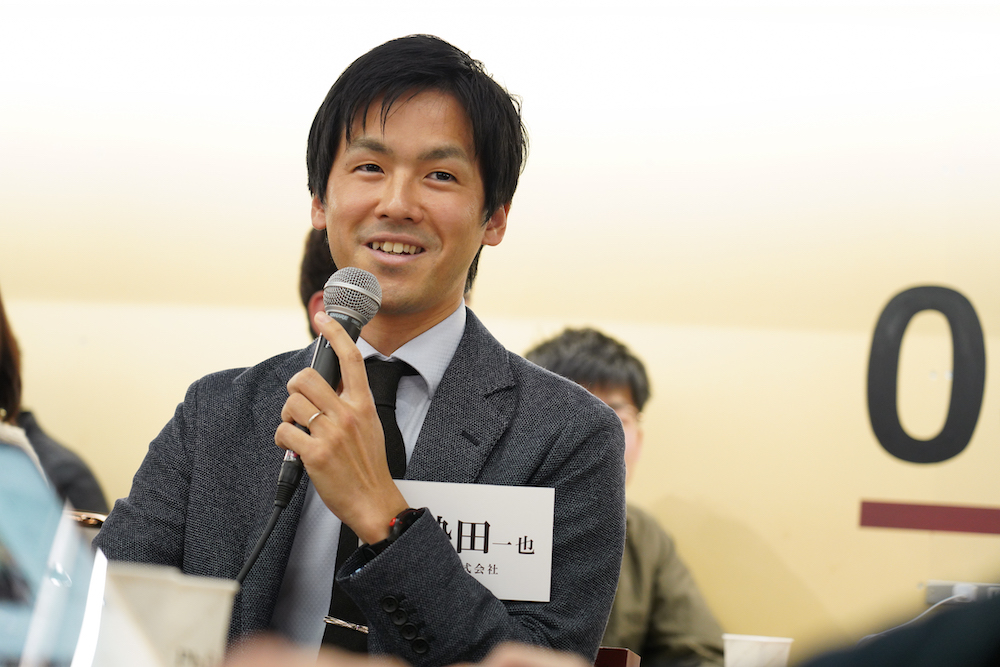
つづきはこちら。
